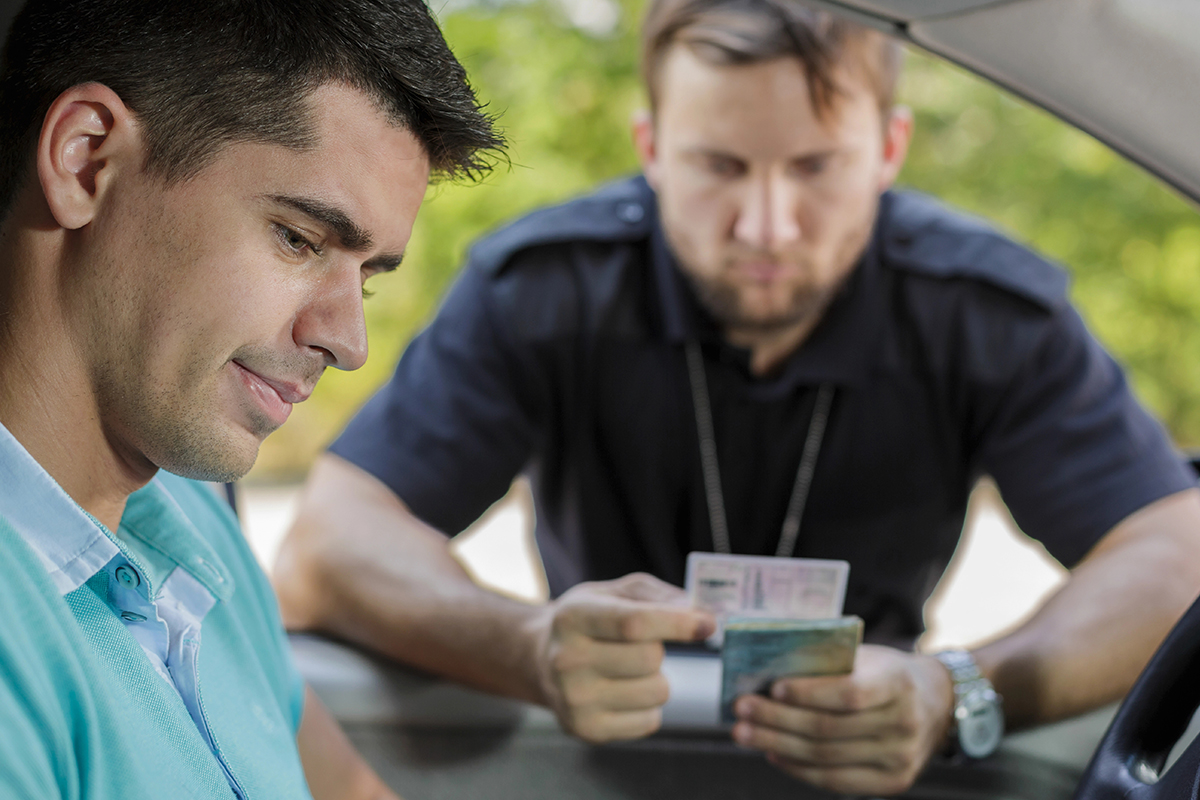If you are facing traffic offences & violations, you need a criminal defence lawyer in Calgary to look at your case as soon as possible.
In Calgary, there are two main types of traffic violations: criminal driving violations and provincial violations.
- Most traffic violations in Alberta, like speeding, running red lights, and not signalling, are covered by the Traffic Safety Act. These are not criminal offences and won’t show up on a criminal record.
- If you break a provincial traffic law, you’ll usually get a fine of $78 to $500 and points on your driver’s licence. For more details on fines and your options, see our Fine Lawyers Calgary resource.
- You will not go to jail for these offences if you don’t pay your fines or show up in court as required.
Driving while impaired (Section 320.14), driving dangerously (Section 320.13), and leaving the scene of an accident (Section 320.16) are all hybrid, criminal offences.
- This means that the Crown can either proceed by indictment for more serious cases or a summary conviction for less serious ones.
- If you are convicted of dangerous driving, which is a serious crime, you could spend up to ten years in jail. If someone was seriously injured, you could go to prison for up to 14 years.
- If you are found guilty of a summary offence, you could be fined up to $5,000 and sent to jail for up to two years.
- The same penalties apply to driving while impaired, plus a mandatory minimum fine of $1,000 for a first offence and a minimum jail sentence for repeat offenders. You can also find guidance through our Impaired Driving and DUI Lawyers in Calgary page.
Strategic Criminal Defence is a top Google-rated criminal defence firm in Calgary, with over 600 5-star reviews. Our firm, and our experienced legal team, have defended clients in over 10,000 criminal cases. Leveraging our extensive network of lawyers and decades of experience, we craft defence strategies to help those accused of traffic offences & violations beat the charges.
The lawyers at Strategic Criminal Defence are both highly experienced and dedicated to defending your rights and future in the face of these charges. Contact a lawyer today by calling (403) 719-6410.
Key Takeaways
- In Calgary, traffic violations can be as small as speeding or as serious as driving while impaired.
- The Traffic Safety Act in Alberta says that most of the time, breaking a traffic law means getting a fine ($78–$500) and demerit points, but not going to jail or getting a criminal record.
- The federal criminal law says that it is against the law to drive drunk, drive dangerously, or leave the scene of an accident. If you do these things, you could get a criminal record.
- You could go to jail for up to ten years if you are charged with dangerous driving. If someone gets hurt or dies as a result of your dangerous driving, you could go to jail for up to 14 years.
- If you get arrested for driving while impaired, you might have to follow some bail conditions. For example, you might not be able to drive, drink, have your car taken away, or call the police.
- You can sometimes win a traffic ticket case if you have an effective lawyer. You might be able to get a provincial ticket lowered or thrown out if there is insufficient evidence.
- There are defences available against criminal driving charges as well. You could, for instance, question the breath test’s accuracy, point out mistakes the police made, or argue that your rights were violated when you were arrested.
How can a Traffic Offence & Violation lawyer in Calgary help?
Whether you just received a speeding ticket or are facing a serious criminal driving charge, our lawyers can help.
- We can check your ticket for mistakes, talk to the prosecutors about lowering your fines or charges, and even go to traffic court for you, usually without you having to be there.
- If you’re being investigated for a crime while driving but haven’t been charged yet, it’s very important to get legal help right away. We can help you talk to the police while maintaining your rights.
- We can get important evidence for technical defences as well. Such as, police dashcam footage, maintenance logs for breath testing devices, or video from the scene.
- We might also hire expert witnesses, like toxicologists who can question blood alcohol calculations or accident reconstruction experts who can give other reasons for what looked like dangerous driving.
The most important thing is that our lawyers know how to navigate the complicated rules of both criminal and traffic court. You can learn more about this process on our Court Process in Calgary page. This won’t make you miss important deadlines or chances to win your case. We can ask police officers about what they saw during the trial, question the accuracy of speed detection devices, or argue to protect your Charter rights when they are violated.
Examples of Traffic Offences & Violations
You might see these traffic violations like this in Calgary:
- When you drive faster than the speed limit, for example going 70 km/h in a 50 km/h zone, you are committing the offence of speeding. If you face such a charge, our Speeding Ticket Lawyers Calgary can help you address the issue.
- Driving while using your phone or eating can be charged as a distracted driving offence. You could get a $287 fine and three points on your driving record for this.
- Not stopping at stop signs means not coming to a full stop when required and is another traffic offence.
Consequences of Traffic Offences & Violations
In Calgary, the penalties for getting a provincial traffic ticket and a criminal driving charge are very different. Knowing what the possible punishments are can help you decide what to do with your case.
The Alberta Traffic Safety Act says that most traffic violations in Calgary, like speeding, running red lights, or not signalling, are provincial offences.
- If you don’t pay your fines or show up in court, you won’t go to jail or get a criminal record.
- The fines for provincial traffic violations range from $78 for small things like parking too far from a curb to $567 for significant things like not stopping for a school bus.
- The fine for a speeding ticket increased based on how much you were over the speed limit. The fine starts at $105 and goes up to more than $481.
- Most violations also add demerit points to your licence. You will lose your licence if you get 15 points in two years.
The Criminal Code of Canada makes some driving actions against the law.
- These are things like driving while drunk, driving in a way that is dangerous, and leaving the scene of an accident.
- The Crown prosecutor can choose to charge these crimes, which are called “hybrid offences,” with either a summary conviction (less serious) or an indictment (more serious).
- If you drive while drunk for the first time, you will have to pay a minimum of $1,000. You will have to spend at least 30 days in jail if you commit a second impaired driving offence. If you commit three or more impaired offences, you will have to spend at least 120 days in jail. If you are found guilty of driving while drunk, you could go to jail for up to 18 months. If you severely injure someone while driving drunk, you could go to jail for up to 14 years.
- There is no minimum punishment for a criminal charge of dangerous driving. The most someone can get in prison for dangerous driving is 14 years if they severely injure someone. If someone dies due to your dangerous driving, you can be charged with a maximum of life imprisonment.
Along with criminal charges, you will also have driving prohibitions of various lengths for different criminal driving offences. Your insurance rates will also increase, and you’ll have a criminal record for the rest of your life.
Traffic Offence & Violation Defences
If you are charged with a traffic violation or crime, you may have a number of legal defences. We can help you figure out which of these defences may apply to your situation.
Here are potential defences:
- When Calgary police stop cars and issue them tickets for certain traffic violations, they have to follow certain rules to respect your Charter rights. You might have a defence if these rules weren’t followed correctly in your case.
- There are a lot of different ways for the Calgary police to check speed, and each one can have its own problems. Having evidence of incorrect speed detection offers another possible defence.
- If you break a traffic law while you’re in a real medical emergency, like a heart attack, a severe allergic reaction, or a woman in labour, you might have a defence.
Traffic Offence & Violation Investigation
In Calgary, if you get pulled over for a traffic related violation, the investigation will be different depending on whether it’s a minor provincial offence or a more serious criminal driving offence.
- A police officer can see a provincial offence happen directly or with tools like radar guns or red light cameras.
- They will typically then stop you, ask for your driver’s licence, registration, and insurance, and give you a ticket right away.
- This simple investigation usually takes 10 to 15 minutes and ends with you getting a ticket.
Driving while drunk and other criminal offences that happen while driving are looked into much more thoroughly.
- When an officer pulls someone over or stops them at a checkstop, their first job is to look for signs of impairment.
- They could ask you to take standardized field sobriety tests on the side of the road and breathe into an approved breathalyzer.
- If these tests show that you are impaired, you will be arrested and taken to the police station for more testing on a device that gives more accurate breath samples.
- When police look into driving while impaired, they might also talk to witnesses, get security camera footage from nearby businesses, or take blood samples.
- If there was an accident, the police can gather physical evidence from the scene for an investigation into dangerous driving. They will talk to people who saw the crash, take pictures and measurements, and maybe even hire experts to find out how fast the cars were going and how they crashed.
Bail Conditions for Traffic Offences & Violations
In Calgary, you will not be arrested and released on bail for provincial traffic violations; you just get a ticket.
But, if you break a federal criminal law, like driving drunk, driving dangerously, or leaving the scene of an accident, you could be arrested and have to follow bail conditions before your trial.
- Your bail conditions will depend on how serious the crime you are accused of is and how many people were hurt.
- One of the most common conditions of bail for people who are charged with driving while impaired is that they can’t drive any kind of vehicle until their case is over.
- This is not the same as a provincial licence suspension, which might also restrict you from driving during and after a criminal offence case.
- You might also not be able to drink or do drugs, especially if your offence was substance related.
- You may also be required to stay away from places that mostly sell alcohol, such as, bars and clubs.
- You will likely have to report to a bail supervisor and may have to follow a curfew.
If you breach any of these conditions, you can incur a new charge and be re-arrested until your case finishes.








